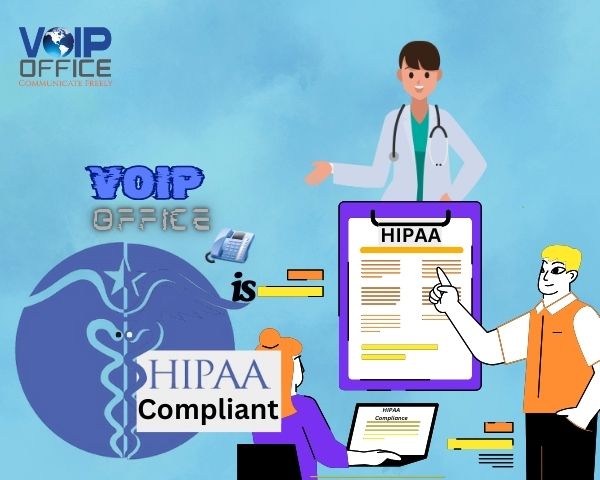A HIPPA Compliant (Health Insurance Portability and Accountability Act) VoIP phone system follows the recommendation set forth by the U.S. Department of Health and Human Services, guidelines for protecting customer data that include voice messages, files stored, calls that are recorded, be it chat or even SMS records.
All lines of business and organizations that handle sensitive patient PHI (Personal Health Information) or ePHI (Electronic Protected Health Information) must use HIPPA Compliant VoIP providers. VoIP Office is a HIPAA-compliant VoIP provider.
Companies that should meet HIPAA-compliance standards are,
- Healthcare Organizations and Sellers.
- Pharma companies include drug stores.
- Practicing Doctors.
- All types of Billing companies.
- Technology company dealing in the healthcare industry.
- Law firms have lawyers.
- Companies dealing in insurance.
- Platforms that electronically maintain health records.
- Service Providers.
- Information Technology providers.
VoIP Requirements For HIPAA Compliant
VoIP office phone systems meet both physical and network security measures, which makes them HIPPA Compliant. They protect patients’ private health information by helping to secure sensitive data. Many rules and regulations must be followed, as the technologies used for transmitting patient data should be used,
- To protect against unauthorized use.
- Ensure employees and contractors recruited directly by the company, along with company-recruited workers & subcontractors, must comply with guidelines stipulated in HIPAA.
- Ensure the confidentiality, integrity, and obtainability of ePHI and PHI.
- Secure patients’ information against any form of outside threats.
VoIP Office systems meet the main requirements of the HITECH (Health Information Technology for Economic and Clinical Health) Act to become compliant with HIPAA laws through,
Proper Authentication
Only those authorized users permitted by IT personnel will get access to ePHI. All phone lines will be given a distinctive user ID that ensures that only authorized employees get access to the patient’s data.
Encryption Of Data
VoIP transmits encrypted data. High encryption technologies like VPNs (Virtual Private Networks) or even TLS (Transport Layer Security) are used by VoIP Office to meet the criteria for encryption of data.
Maintain Call Logs
You must maintain all details regarding call record data to meet HIPAA requirements, including the metadata and administrative functions executed during a call.
BAA (Business Associate Agreement)
Companies collecting health information must require VoIP communication providers to enter into a HIPAA business associate agreement, which ensures compliance commitments are met.


Pingback: VoIP Phone: Can A Regular Phone Be Used as a VoIP Phone -